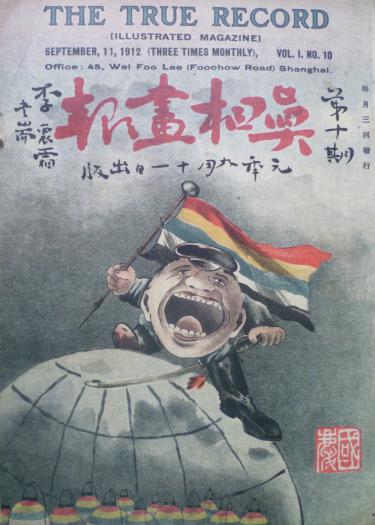Centre for Asian and Transcultural Studies Apocalyptic Visions and the Language of Power: Bolshevik Revolutionaries and Avant-garde Poets (1918-1921)
- Termin in der Vergangenheit
- Donnerstag, 28. November 2024, 14:30 - 16:30 Uhr
- Centre for Asian and Transcultural Studies (CATS), 010.01.05 (CATS Auditorium), Voßstraße 2, 69115 Heidelberg
- Dr Clemena Antonova, Institute for Human Sciences (Austria)
One of the most characteristic features of the period of War Communism (1918-1921) in Bolshevik Russia was the legitimation, among the artistic avant-garde and among the revolutionaries, of a literal language, openly proclaiming violence and destruction. Literal language is a language of power, because it implies that those who have prevailed and will prevail in the most radical political revolution in modern history do not need the cover of lies and hypocrisy. Indeed, their mission was to unveil the falsehoods of bourgeois democracy and trust the masses with the harshest possible truths. In this sense, Dr Antonova will suggest that the intentional use of literal language is apocalyptic in the original, religious sense of the term “apocalypse” as “revelation”. In her lecture, she will draw attention to the shared vocabulary of Bolshevik revolutionaries and the Left avant-garde by focusing on Leon Trotsky’s Terrorism and Communism (1920) and the poetry of Alexander Block, Vladimir Mayakovsky, and their circle.

Adresse
Centre for Asian and Transcultural Studies (CATS)
010.01.05 (CATS Auditorium)
Voßstraße 2
69115 HeidelbergVeranstalter
Veranstaltungstyp
Veranstaltungsreihe
Vortrag
Alle Termine der Veranstaltung 'Apocalypse Now. Time, Historicity and Worlds After'
Lecture Series
While periodization — the partition of time into segments with a specific beginning and end — is integral to historical method, it cannot be dissociated from a wider reflection on a key issue: the relation between emic time (time as perceived by historical actors) and etic time (time as established by the scholar’s historical narrative). The relation between emic and etic times is an essential methodological question within human, social, and even natural sciences. This lecture series looks at this this question through a particular lens: the “end of times” or “apocalypses.” How do historical actors perceive it? What happens to historiographical narratives when actors talk about the future as the “end” of time? How has such a vision of the future shaped narratives and periodization schemes?
By focusing on “ends of times” and “apocalypse”, the tensions between time, temporalities and time horizons are to be discussed, both methodologically and empirically, in specific contexts. The three main areas are: 1) political history — the history of revolutions; 2) religious history — the history of last judgements and revelations; and 3) natural history — the history of pandemics, cataclysms and disasters. The first block (political history) will discuss the link between revolution and the end of time, starting with revolutions at the turn of the eighteenth and nineteenth centuries, including the Russian and Chinese revolutions. The second block (religious history) will consider perceptions of the end of time within some of the main religions, considering different takes on apocalyptic revelations, universal floods, millenarianisms and messianic movements. Finally, the third block (natural history) will discuss natural disasters and epidemics, and will feature the controversies over geological eras (such as the Anthropocene) and collapsology.